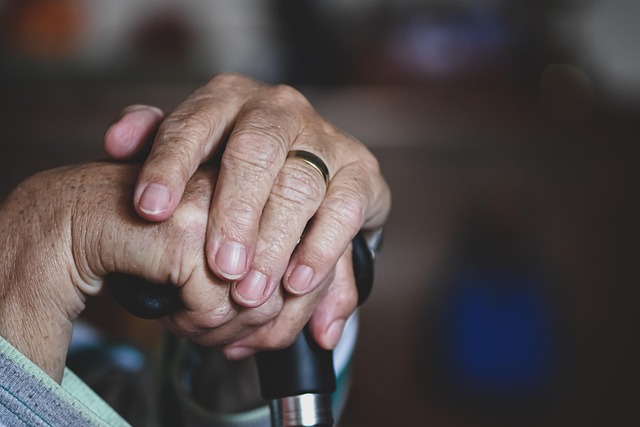Missouri's elderly sexual assault law firm plays a pivotal role in tackling abuse against seniors. The state's laws mandate strict rules for nursing homes, focusing on consent, privacy, and staff training to protect vulnerable residents aged 65+. Recognizing red flags like unexplained injuries or behavioral changes is crucial. Security measures, including surveillance and visitor policies, are essential. Staff training equips employees to identify risks and adhere to legal requirements. Empowering seniors with knowledge and support systems enhances their safety and self-protection. An elderly sexual assault law firm leads these efforts, promoting a culture of awareness and accountability in Missouri nursing homes.
In Missouri, nursing homes play a crucial role in caring for our aging population. However, protecting vulnerable residents from sexual abuse is an utmost priority. This article explores comprehensive strategies to prevent such heinous crimes, focusing on key aspects like understanding Missouri’s elderly sexual assault laws and empowering both staff and elders. By identifying red flags, implementing robust security measures, training personnel effectively, and fostering education, we can create safer environments for our senior citizens, with the support of an elder sexual assault law firm in Missouri.
Understanding Missouri's Elderly Sexual Assault Laws

In Missouri, elderly sexual abuse is a serious concern, and understanding the state’s laws is crucial for preventing such incidents in nursing homes. The Missouri elderly sexual assault law firm has played a vital role in raising awareness and advocating for victims. These laws protect individuals aged 65 and over from sexual exploitation and assault. They include strict regulations that nursing home staff must follow to ensure resident safety, especially considering the vulnerable nature of elderly individuals.
The state’s legislation outlines clear guidelines on consent, privacy, and appropriate boundaries in care settings. It also provides legal recourse for victims and their families, enabling them to hold institutions and staff accountable. By staying informed about these laws, nursing home administrators and staff can better prevent sexual abuse, foster a safer environment, and ensure compliance with the law.
Identifying Red Flags: Potential Abusers and Vulnerable Residents

Recognizing potential red flags is a critical step in preventing sexual abuse within nursing homes. Individuals who may pose a risk include those with a history of abusive behavior, power imbalances between staff and residents, and unaddressed mental health or substance abuse issues. Elderly individuals, especially those with cognitive impairments or limited mobility, are particularly vulnerable to sexual assault.
Nursing home staff should be vigilant for signs such as unexplained injuries, changes in behavior (e.g., increased anxiety, withdrawal), or unusual interactions between staff and residents. An elderly sexual assault law firm in Missouri may also highlight the importance of documenting and reporting any suspicious incidents promptly to ensure the safety and well-being of vulnerable residents.
Implementing Security Measures in Nursing Homes

Implementing robust security measures is an essential step in preventing sexual abuse within nursing homes in Missouri. This includes 24/7 surveillance and the installation of advanced security systems like cameras in common areas, corridors, and even individual rooms. Staff training on identifying potential risks and reporting mechanisms is crucial, as they are often the first line of defense against any inappropriate behavior. Regular security audits can help identify vulnerabilities and ensure compliance with Missouri’s strict elderly sexual assault laws.
Additionally, nursing homes should enforce strict visitor policies, requiring all visitors to sign in and out and limiting access to specific areas. Implementing a buddy system for elderly residents during activities or outings can also deter potential abusers. These measures, combined with an open and supportive environment where residents feel comfortable discussing concerns, create a safer living space for vulnerable individuals. An elderly sexual assault law firm in Missouri highlights the importance of these proactive strategies to protect residents’ rights and well-being.
Training Staff: Recognizing and Responding to Incidents

Staff training is a pivotal strategy in preventing and responding to sexual abuse in nursing homes. All employees, from nurses to care assistants, should undergo comprehensive training on recognizing potential signs of abuse and understanding their roles in handling such incidents. This includes learning about the dynamics of power imbalances, which are common in healthcare settings, especially when caring for vulnerable elderly individuals.
Training sessions can equip staff with the knowledge to identify unusual behaviors or changes in a resident’s mood, providing an opportunity to intervene early. Additionally, employees should be familiar with Missouri’s elderly sexual assault laws and reporting procedures, ensuring they know how to protect both residents and themselves during potentially dangerous situations. Regular refreshers and updates on best practices are essential to keep staff prepared and vigilant.
Empowering Elders: Education and Support Systems

Empowering elders with knowledge is a powerful tool in the prevention of sexual abuse. Many older adults may be vulnerable due to their age, physical limitations, or cognitive impairments, making them susceptible targets. An elderly sexual assault law firm in Missouri can play a significant role in educating residents and staff about consent, personal boundaries, and recognizing signs of potential abuse. Workshops and training sessions can cover topics like body awareness, safe interactions, and what to do if they feel uncomfortable or experience any form of unwanted advances.
Support systems are equally vital. Encouraging open communication between residents and their caregivers, families, or friends can help identify issues early on. Establishing a network of trusted individuals who are aware of the potential risks and signs of abuse can provide an additional layer of protection. These support mechanisms, combined with education, empower elders to speak up, set boundaries, and take proactive measures against any form of sexual misconduct.





